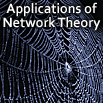Speaker
Luis Enrique Correa da Rocha
(IceLab, Umeå University)
Description
The structural patterns of sexual contacts are believed to
shape the spreading dynamics of Sexually Transmitted
Infections (STI). More importantly, the order the contacts
are made creates heterogeneity in the contacts sequence and
restricts the possible paths for an infection to propagate
in the population. This temporal constrain has not been much
explored but has several consequences for dynamics on the
network, for example, it results in larger outbreaks and
increases the diversity of outbreak sizes. In this talk, I
will first introduce a large empirical dynamic network of
sexual contacts, obtained from a web community related to
sexual encounters between sex-buyers and -sellers in Brazil.
Afterwards, I present some results about the simulation of
general STIs on this evolving network and discuss how the
infection patterns change due to not only the temporal
constrain but also to other network properties, as the
cluster structures.

